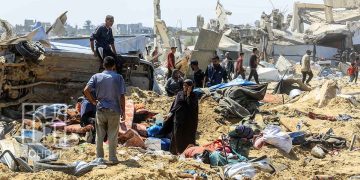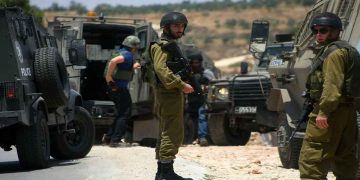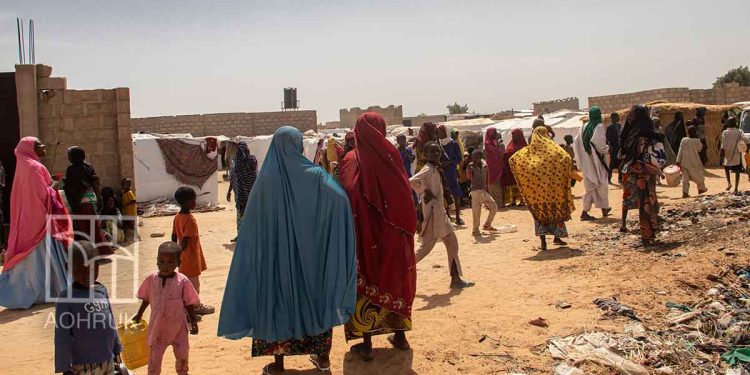Within weeks, the city of El-Fasher in northern Sudan has become the scene of mass killings and forced displacement, amid an almost total halt to humanitarian aid and a complete absence of civilian protection.
As warnings grow of an unprecedented humanitarian catastrophe, the United Nations has described the situation in Sudan as “dire”, reflecting the depth of collapse threatening millions of lives and exposing the failure of international efforts to end the war or mitigate its consequences.
UN spokesperson Stéphane Dujarric said the conflict in Sudan remains intense, noting that “humanitarian workers report continued attacks on civilians in North Darfur.”
He added that “humanitarian access to El-Fasher has been completely cut off,” and that “desperate civilians are fleeing towards nearby towns in search of safety.”
According to data from the International Organization for Migration (IOM), at least 62,000 people have fled the city, amid reports of “abduction and extortion of civilians during their movements,” the UN official said.
Dujarric called for “the establishment of safe corridors for displaced persons, protection for those who remain in the city, and full, unrestricted humanitarian access to Darfur and other affected regions,” stressing that the images emerging from El-Fasher are “horrifying” and that the immediate priority is “to deliver aid as swiftly as possible to support the survivors.”
Meanwhile, the independent civil society group Sudan Doctors’ Network reported the arrival of more than 640 displaced people from El-Fasher to the town of Ad-Dabbah in the Northern State in recent hours, warning of a “deepening humanitarian disaster” amid massacres perpetrated by the Rapid Support Forces (RSF) in the city.
The network stated that the displaced are enduring harsh conditions after a perilous journey, lacking shelter, food, water, and healthcare, especially among children, women, and the elderly.
This surge in displacement underscores a comprehensive collapse of humanitarian conditions across Sudan, where local communities are increasingly unable to absorb and assist newly displaced populations. The absence of urgent relief and the deterioration of health infrastructure in host areas portend the total breakdown of the humanitarian system, unless rapid action is taken to secure emergency aid.
These developments follow the RSF’s seizure of El-Fasher on 26 October, accompanied by grave violations committed against civilians.
Since April 2023, Sudan has been engulfed in a devastating war between the army and the RSF, which has killed tens of thousands and displaced more than 13 million people, in what is now one of the world’s worst humanitarian crises.
Against this backdrop, fears are mounting that Darfur could turn into a sealed disaster zone, cut off from humanitarian relief, where millions are denied their right to safety, food, healthcare, and protection, amid the complete absence of deterrence or accountability, and an international silence that has yet to stem the human haemorrhage continuing for more than a year and a half.


























